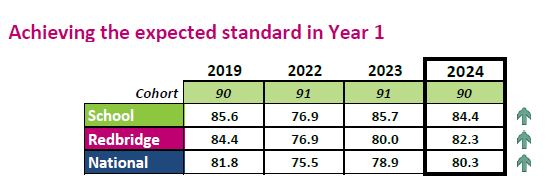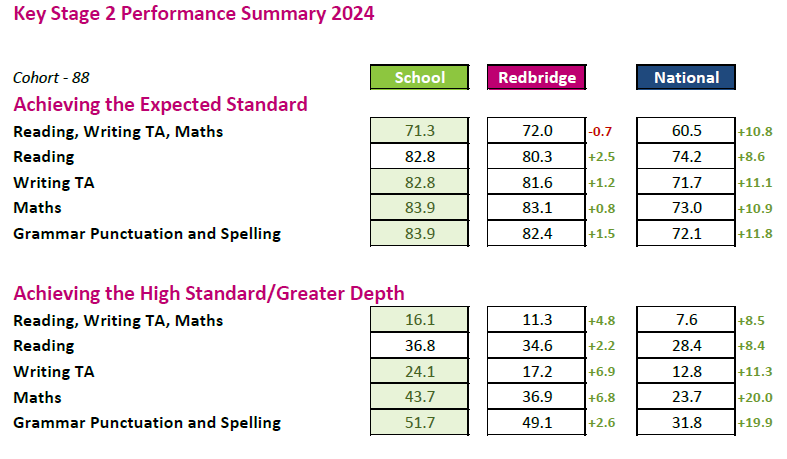Curriculum

intent
Our curriculum is ambitious and robust. It has been carefully crafted to facilitate the progressive development of both skills and key knowledge. Each step is strategically sequenced with clear end points, creating a seamless progression that nurtures the growth and development of our pupils. Committed to excellence, our curriculum covers all aspects of the National Curriculum, ensuring that our pupils receive a comprehensive and high-quality education. This alignment provides the foundation for a well-rounded and balanced experience.
Beyond the foundations of the National Curriculum, the Aldersbrook curriculum has been tailored to align with:
- Our overarching school vision: Learning and Leading
- Our core values: Curiosity, Involvement, Confidence and Independence (C.I.C.I.)
- Our commitment to providing an enriching curriculum that develops our pupils holistically
1. How does our curriculum embody our overarching school vision?

At Aldersbrook, our curriculum is designed to go beyond traditional academic learning. We believe in nurturing well-rounded pupils who are not only academically proficient but also possess the learning and leadership skills needed in our dynamic world. Our curriculum integrates a holistic approach that emphasises both personal development and academic excellence. We want our pupils to be equipped with the skills needed to go out into the world and make positive changes. Our innovative curriculum champions the qualities of being excellent learners and leaders.
2. How does our curriculum foster our core values; curiosity, involvement, confidence and independence?

At Aldersbrook, we are passionate about an environment which is populated with curious, confident, involved and independent learners for life. We believe that when learners are curious, they ask questions about the world around them and learning becomes a part of their whole life; beyond the walls of the classroom and the school gate. Curiosity builds a love of learning and a drive to discover answers for themselves.


When pupils are involved, they ask questions about what they are learning and why, they learn to collaborate and work alongside a wide range of people. They see their role and shared responsibilities in the bigger picture of their local community as well as their world! As a school, we aim to foster an environment where every child has the opportunity to share their thoughts and opinions, both inside and outside the classroom.


We believe that when children are confident, they maintain a voice. They articulate themselves respectfully, ensuring their thoughts and opinions are heard. Through doing so, pupils are increasingly instrumental in their own learning environment. This is something that all members of staff promote and facilitate so that our pupils feel supported and are confident, no matter the challenges they may come across.


We know that when learners are independent, they have a greater understanding of what helps them learn and how they can find appropriate strategies to improve. Our Montessori approach to learning in our Early Years Foundation Stage and Key Stage 1 builds these skills, which are reinforced as our pupils travel through the school. We champion independence through all aspects of the curriculum.

3. How does our curriculum exceed the standards set by the National Curriculum?
We never rest on our laurels, instead, we continually strive for excellence with our commitment to high expectations. We have crafted a learning environment that goes above and beyond the national curriculum standards. We offer our pupils a wealth of enrichment opportunities, including:
- Forest School in our local forest
- "Green Fingers" on the local allotment, fostering a connection to nature and environmental conservation
- Regular access to a state-of-the-art kitchen that provides a platform for learning important life skills
- An on-site Forest School garden, allowing our pupils to connect with nature and learn in unconventional yet impactful ways
- We champion outdoor learning with off-site camping residential visits, providing our pupils with unique experiences that foster teamwork, resilience, and a love for the great outdoors.
- Pupils go on at least one educational visit each half-term to bring their topics to life and enrich their learning experiences.
- Pupils learn how to play instruments such as the violin and cornet with the support and expertise of musicians from the Redbridge Music Service.
- Links with organisations in our local and global community, such as Wanstead High School, Leyton Orient Football Club, International Schools and more
- A range of after-school clubs that reflect our broad curriculum offer
- Termly 'Curiosity Shop' sessions that offer pupils a chance to choose a workshop of interest
- Leadership opportunities for pupils, which includes the school parliament interviewing prospective staff, making strategic changes to the school, half-termly podcasts that focus on general life in school and pupil newsletters that are published by our learning ambassadors.
Enrichment in our school is essential as it provides pupils with a well-rounded and engaging learning experience. It goes beyond the basic academic curriculum, offering additional activities, experiences, and challenges that cater to diverse interests and talents. We want our pupils to discover, explore and develop their passions through a range of avenues.
IMPLEMENTATION
Early Reading/ Phonics (Nursery, Reception, Year 1 & Year 2):
Our school uses Super Sonic Phonic Friends, which is a validated phonics scheme. This scheme breaks words down into sounds and children learn a new sound every day until they have developed a code for the 44 different sounds in English. As soon as children recognise sounds, they use them to blend words and to start reading stories at the appropriate level. Children in Reception, Year 1 and Year 2 have a daily reading skills lesson with a focus on decoding and comprehension skills. Find out more about how we deliver early reading and phonics here.
Guided Reading (Years 1 – 6):
We teach whole class Guided Reading daily. Pupils develop and build upon a range of progressively sequenced reading skills, including a weekly teacher-led class discussion based on a book that the whole class reads together. Have a look at our reading page for more information on how reading is taught along with the texts we use.
Writing:
Our English lessons are taught daily. Each lesson begins with a Spelling, Punctuation and Grammar starter (SPAG). Find out more about how we teach writing here.
Foundation Subjects:
All foundation subjects are taught discretely so that the integrity of their respected disciplinary skills and knowledge is maintained. Some topics are taught using a cross-curricular approach where appropriate. For example, Year 4 sculpt Egyptian death-masks using Modroc in D&T while learning about the Ancient Egyptians in History.
We use skills progression maps so that there is clear progression across all subjects. We have also created bespoke knowledge progression maps that outline the key knowledge we want our pupils to know and remember. The key knowledge in these documents have been sequenced with clear end points. Find out more about each subject here.
Impact
To measure the impact of our curriculum effectively, we employ several rigorous methods that ensure both depth and breadth in evaluating student success:
-
End of Key Stage Outcomes: We regularly assess that our outcomes at the end of key stages are consistently above both local and national averages, demonstrating the effectiveness of our curriculum design and delivery.
Phonics - Year 1 2024


-
Formative and Summative Tracking: Throughout the academic year, we utilise both formative (ongoing) and summative (at the end of a period) assessments to monitor student progress and adapt our teaching strategies accordingly.
-
High-Quality Pupil Outcomes: Our focus is on achieving high-quality outcomes and endpoints across various disciplines, ensuring that pupils are well-prepared for the next stages of their educational journey.
-
Pupil and Parent Voice: We actively incorporate feedback from pupils and parents to assess the impact of our curriculum, ensuring it meets the needs and expectations of our school community.
-
Measuring Outcomes in Pupil Books: Regular reviews of pupils’ workbooks allow us to directly observe their progression and understanding, providing tangible evidence of the curriculum’s impact.
- External Views: We actively seek out and incorporate insights from school improvement officers, peer reviews, collaboration with leaders from local schools, local authority audits and guidelines and moderation processes to ensure a robust, well-rounded assessment of our curriculum’s effectiveness.
Educational Visits
We are passionate about educational visits at our school. Children go on at least one educational visit each half-term to bring their topics to life and enrich their learning experiences. Where possible, we try our best to schedule educational visits at the beginning of our topics so that they serve as a ‘hook’ for our curious learners! We also invite guest visitors in to enhance our learning experiences too. Have a look at our photo gallery to keep up to date with recent educational visits.
Find out what each year Group is Learning



